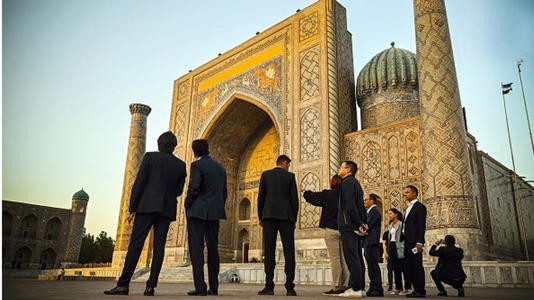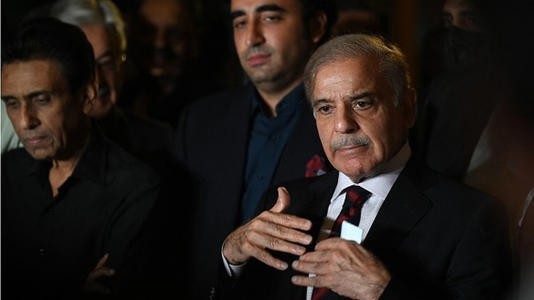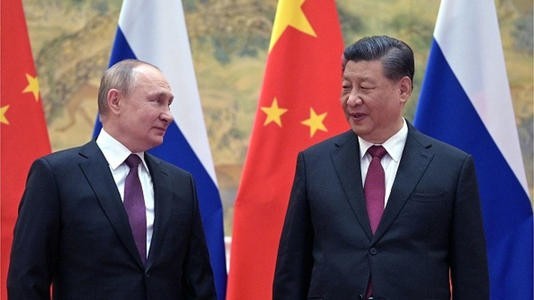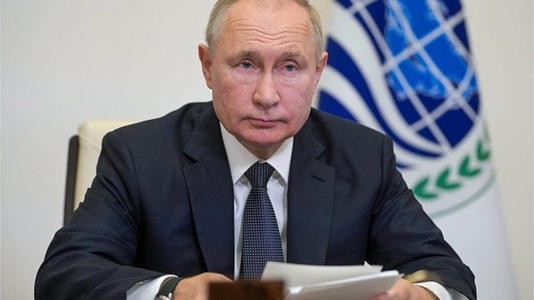
views

Indian Prime Minister Narendra Modi will attend a summit of regional security bloc in what is being described as an "alternative" to the Western world.
Members of the Shanghai Cooperation Organisation (SCO) will hold in-person meetings for the first time since 2019 when the Covid-19 pandemic upended lives around the globe.
Chinese President Xi Jinping, Russian President Vladimir Putin, Pakistan Prime Minister Shehbaz Sharif and Iranian President Ebrahim Raisi are all expected to attend what will be the SCO's 22nd meeting, which is being held in the ancient city of Samarkand in Uzbekistan on 15 and 16 September.
The meeting comes at a time when China and Russia are increasingly positioning the grouping as a counter to the West.
Mr Xi is making his first trip overseas since the beginning of the pandemic, days before he seeks a historic third term.
Meanwhile, Mr Putin's relations with the West are in a shambles over Ukraine, where the Russian army has been losing ground and has suffered a series of embarrassing defeats in recent weeks.

What is India's role in the summit?
Reports suggest that Mr Modi is likely to hold bilateral meetings on the sidelines of the summit but there has been no official confirmation from the Indian government.

Nonetheless, this will be the first time that Mr Modi and Mr Xi will come face-to-face since the armies of their countries began a stand-off in eastern Ladakh in May 2020.
According to reports, the two sides have just completed a fourth round of disengagement at one of the main friction points after being in stalemate for over a year.
Much of the focus will also be over whether Mr Modi will have any substantial discussions with his Pakistani counterpart Shehbaz Sharif since the latter became the prime minister in April.
Bilateral relations between India and Pakistan have always been bedevilled by complex political and territorial disputes. And tensions have routinely spilled over at the SCO as well.
In September 2020, India had walked out of the SCO meeting of national security advisors when Pakistan used a "fictitious" map showing Indian territories as part of Pakistan.
Diplomatic relations between Delhi and Islamabad hit a new low in 2019 when India stripped Kashmir - which is also claimed by Pakistan - of its special status and split the region into two federally-administered territories. Imran Khan, who was then the prime minister of Pakistan, indefinitely suspended trade with Delhi, virtually brining formal communication between the neighbours to a standstill.
However, some reports have suggested there could be a potential thaw in relations at the summit in Uzbekistan, especially since Pakistan has a new prime minister.
In April, Pakistan's foreign minister had expressed interest in resuming trade with India as he criticised the previous government for keeping Pakistan "internationally isolated and internationally disengaged".
Some analysts say Delhi sharing space with Pakistan in a forum that is focused on fighting terror is a bit odd considering how India blames Pakistan for fomenting violence on its territory.
Delhi shares a somewhat unique position within the SCO as well - it is also a part of another alliance with the US, Japan and Australia, known as the Quad. It has refused to condemn Russia's invasion of Ukraine and has ramped up purchases of oil from Moscow.
Why does the summit matter?
China, Russia and four central Asian states - Kazakhstan, Kyrgyzstan, Uzbekistan and Tajikistan - formed the SCO in 2001 to curb extremism in the region and enhance border security.
India and Pakistan joined in 2017 in its first round of expansion, while Iran is set to become a full member this time.
The SCO was widely viewed as a countermeasure to limit the influence of Western alliances such as Nato.
While its impact has been limited, analysts say its influence as one of the largest trans-regional international blocs cannot be overstated.
The group accounts for almost 44% of the world population - stretching from the Arctic Ocean and Indian Ocean in the east to the Pacific Ocean and Baltic Sea at the other end - and more than 30% of the global Gross Domestic Product (GDP).
Over the years, its activities have expanded from regional security to cover economics and trade, and even law enforcement. Observers say the bloc also has great economic potential with more and more countries joining as members or partners.
But analysts say the bloc remains dominated by China and Russia. Moscow regards central Asia as its sphere of influence but Beijing's economic footprint has also been steadily rising, earning it considerable political clout in the region.

The Ukraine factor
That said, there have been signs of warming relations between Beijing and Moscow, particularly after Russia's invasion of Ukraine.
Russia has been working on building closer economic ties with China and other non-Western countries after sweeping sanctions were imposed on Russia in retaliation for the war. In the first eight months of this year, bilateral trade between China and Russia jumped 31.4% to $117.2bn.
With Europe moving away from Russia, Mr Putin hopes to rely on China to boost his country's energy imports.
The two recently signed an agreement to start payments for gas supplies to China in yuan and roubles instead of US dollar. The Russian president also announced a three-way Russian-Chinese summit with Mongolia - a potentially much shorter route to take Russian energy to China.
The meeting between Mr Putin and Mr Xi also comes amid burgeoning anti-West sentiment in their countries.
When the two leaders met last in February at the start of the Beijing Winter Olympics, they declared a "no limits" partnership, with a promise to collaborate more against the West. Russia invaded Ukraine days later.
So far, China's official line on Ukraine has been cautious, and it has not explicitly supported Russia, but Beijing has largely blamed the West for the crisis.

This comes at a time when China's relations with the West has also been strained over Taiwan, which Beijing claims as its territory. It maintains that Nato is refusing to respect the sovereign right of Russia and China to defend their territory.
An editorial in the Chinese-run Global Times newspaper in January said that it was "the ever closer relationship and bond between China and Russia [that is] the last defence that protects the world order".
As the leaders meet in Uzbekistan, observers predict a further strengthening of ties between the two countries as they seek to offer an "alternative" to the Western world.
SOURCE BBC




















Comments
0 comment